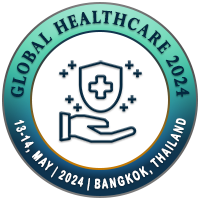
Thinavhuyo Robert Netangaheni
University of South Africa, South AfricaTitle: Interventions for Type 2 Diabetes reduction among older people living with HIV in Harare
Abstract
Type 2 Diabetes reduction among older people living with Human Immunodeficiency Virus (PLWH) is pertinent as they face excess HIV and antiretroviral therapy (ART) related risks. Further there is a growing population of ageing PLWH. The current interventions used for the general population of screening and health education are inadequate to identify all older PLWH at risk of Type 2 Diabetes creating a need for enhancement of these practices. Therefore, the aim of the study was to describe interventions for Type 2 Diabetes reduction among older people living with HIV in Harare. The study was conducted in a densely populated low socio-economic area, from five primary health care clinics. A qualitative multimethod approach was applied using an exploratory descriptive design and an integrative literature review. The exploratory descriptive study collected data from two purposively selected samples; (1) older PLWH and (2) nurses providing care to older PLWH. Whittemore and Knafl’s framework was used for the integrative literature review. Data sources triangulation was applied to analyse results from the three data sources using Braun and Clark’s content analyses. Ethical approval was obtained from the University of South Africa (14056739_CREC_CHS_2022). Characteristics of the three data sources included first, 23 older PLWH with mean age, 62 years and a mean duration of HIV infection of 11.3 years. Second, 9 nurses with an average of 6 years’ experience. Third, 12 articles from 2013-2023. On thematic analysis, results were; screening should include; assessment of PLWH from a younger age; assessment of HIV and ART-specific risks; diagnostic test on ART initiation and routinely. Health education should provide information on adequate physical activity parameters and increased consumption of fruits and vegetables. Metformin may be considered where lifestyle interventions fail. These interventions improve existing Type 2 Diabetes reduction measures to reduce excess risks faced by older PLWH.
Biography
TBA

